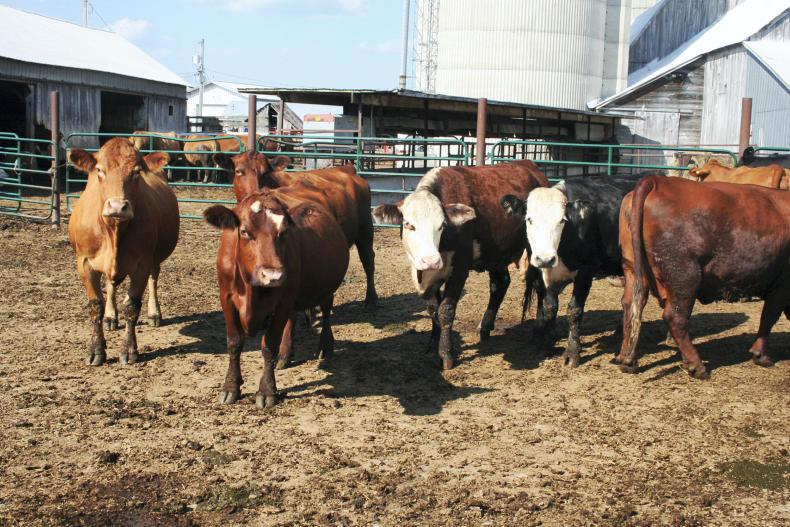On Friday, Wallonia, a small region of Belgium, voted to block the passing of the Comprehensive Economic and Trade Agreement (CETA) between Canada and the EU. In Belgian law, the region has the power to vote on such topics even though all other EU countries had voted to see it progress.
The region, which is seen as fiercely traditional, with a population of just 3.5m, has left the trade deal on the brink of collapse. Wallonia blocked the deal as it saw it as a threat to farmers and welfare standards.
Canada’s trade minister Chrystia Freelan left talks in Brussels angry with the development involving Wallonia.
“It seems evident for me and for Canada that the European Union is not now capable of having an international accord even with a country that has values as European as Canada,” Freelan said.
Speaking to the Irish Farmers Journal in recent days, European Commissioner for Agriculture Phil Hogan said he hoped to see the deal sealed despite the stumbling block in Belgium.
“Everybody is on board except the regional government of Wallonia in Belgium so hopefully they will be able to resolve their issues in the next few days,” he said.
Dead in the water
Sinn Féin MEP Matt Carthy said CETA and the Transatlantic Trade and Investment Partnership (TTIP) between the EU and the US are destined to fail.
“CETA, like TTIP, is bad deal which would have serious negative implications for Irish farmers, workers and consumers ... Today’s comments by the Canadian trade minister mean that CETA is dead in the water,” Carthy said.
Impact on farming
CETA has seen negotiations between the two sides for the past seven years.
Earlier this week, Meat Industry Ireland, the body which represents Ireland’s meat processors, called for CETA to be concluded.
Should CETA be realised, the EU will look to grant total duty-free access to 50,000t carcase weight equivalent (CWE) of Canadian fresh and frozen beef. The total duty-free access the EU will grant to Canada for pork is 75,000t CWE. The EU beef and sheep meat market access into Canada will be fully liberalised at zero in-quota rates.
On dairying, Canada will have duty-free access into the EU dairy market. For the EU, there will be a high-value cheese quota of 16,800t, with provision to allow newcomers, including Ireland and other member states, 30% access to the new quota.
Read more
Full coverage: CETA
On Friday, Wallonia, a small region of Belgium, voted to block the passing of the Comprehensive Economic and Trade Agreement (CETA) between Canada and the EU. In Belgian law, the region has the power to vote on such topics even though all other EU countries had voted to see it progress.
The region, which is seen as fiercely traditional, with a population of just 3.5m, has left the trade deal on the brink of collapse. Wallonia blocked the deal as it saw it as a threat to farmers and welfare standards.
Canada’s trade minister Chrystia Freelan left talks in Brussels angry with the development involving Wallonia.
“It seems evident for me and for Canada that the European Union is not now capable of having an international accord even with a country that has values as European as Canada,” Freelan said.
Speaking to the Irish Farmers Journal in recent days, European Commissioner for Agriculture Phil Hogan said he hoped to see the deal sealed despite the stumbling block in Belgium.
“Everybody is on board except the regional government of Wallonia in Belgium so hopefully they will be able to resolve their issues in the next few days,” he said.
Dead in the water
Sinn Féin MEP Matt Carthy said CETA and the Transatlantic Trade and Investment Partnership (TTIP) between the EU and the US are destined to fail.
“CETA, like TTIP, is bad deal which would have serious negative implications for Irish farmers, workers and consumers ... Today’s comments by the Canadian trade minister mean that CETA is dead in the water,” Carthy said.
Impact on farming
CETA has seen negotiations between the two sides for the past seven years.
Earlier this week, Meat Industry Ireland, the body which represents Ireland’s meat processors, called for CETA to be concluded.
Should CETA be realised, the EU will look to grant total duty-free access to 50,000t carcase weight equivalent (CWE) of Canadian fresh and frozen beef. The total duty-free access the EU will grant to Canada for pork is 75,000t CWE. The EU beef and sheep meat market access into Canada will be fully liberalised at zero in-quota rates.
On dairying, Canada will have duty-free access into the EU dairy market. For the EU, there will be a high-value cheese quota of 16,800t, with provision to allow newcomers, including Ireland and other member states, 30% access to the new quota.
Read more
Full coverage: CETA






 This is a subscriber-only article
This is a subscriber-only article











SHARING OPTIONS: